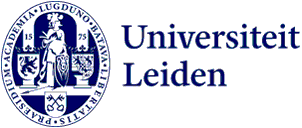Programme
When deciding what to study you undoubtedly read a lot of information about your study programme. Leiden University employs various systems to provide information about programmes and courses and to facilitate communication between lecturers and students.
The Prospectus contains information about all the courses within your study programme. Here you can find all you need to know about your programme. Via the online learning environment Brightspace you can communicate with your lecturers and submit assignments.
International Relations and Organisations (IRO) is a three-year BSc degree programme. All classes, assignments, and other study activities are in English. Studying is a full-time endeavor: you will spend around 16 hours per week attending lectures and tutorials. The rest of the week you will be studying independently or with your fellow students.
Programme structure
Year 1
2 semesters, 4 blocks
- The academic year runs from September to July and is divided into two semesters.
- Each semester has two blocks, so there are four blocks in total.
- Each block has 8 weeks; 7 weeks of lectures and workgroups (the last week of each block is exam week).
- There are no holidays within a semester.
Breaks
- After the first semester, during the month of January, there is a ‘Winter break’, during which there are no programme activities (with the exception of resits, see below).
- The same goes for the ‘Summer break’, which is after the second semester, from July to September.
Exams
- The last week of each block is exam week.
- For each exam there is one resit scheduled.
- Resits for exams taken in the first semester take place during the January reces;
- Resits of exams taken in the second semester take place in June, at the start of the Summer reces.
Year 2

Semesters, blocks, exams
The second year has the same structure as the first year (two semesters, four blocks of each 7 weeks and 1 one exam week).
Electives
In some respects, the second year differs from the first year:
- The academic skills workgroups span two blocks.
- In the second semester, you will have to choose between two courses: Contemporary Political Philosophy (block 3) or Rational Choice Theory (block 4).
Year 3

The third year is all about choice. It consists of three elements, each of which can be tailored to your interests:
- an interactive bachelor seminar, which you pick from a broad range of topics;
- the bachelor project, during which you prepare for and write your thesis and which you also select from a broad range of topics;
- the elective space, spanning 30 EC, which you design yourself, using one or more of these building blocks:
- elective courses from other programmes and even universities;
- a minor, a set of related courses from another bachelor’s programme;
- a research internship and/or
- study abroad, via
- an exchange programme (temporarily enrolling in the study programme of a partner institution), or
- going abroad independently (selecting the institution and making all arrangments yourself).
The options you chose, and how they are scheduled accross the (academic) calendar at home, the target institution or workplace, determine what your third year looks like in terms of the order of courses, etc. By the time you need to start preparing for the third year, your study adviser will gladly assist you.

Course details:
› Prospectus BSc Political Science: International Relations and Organisations
